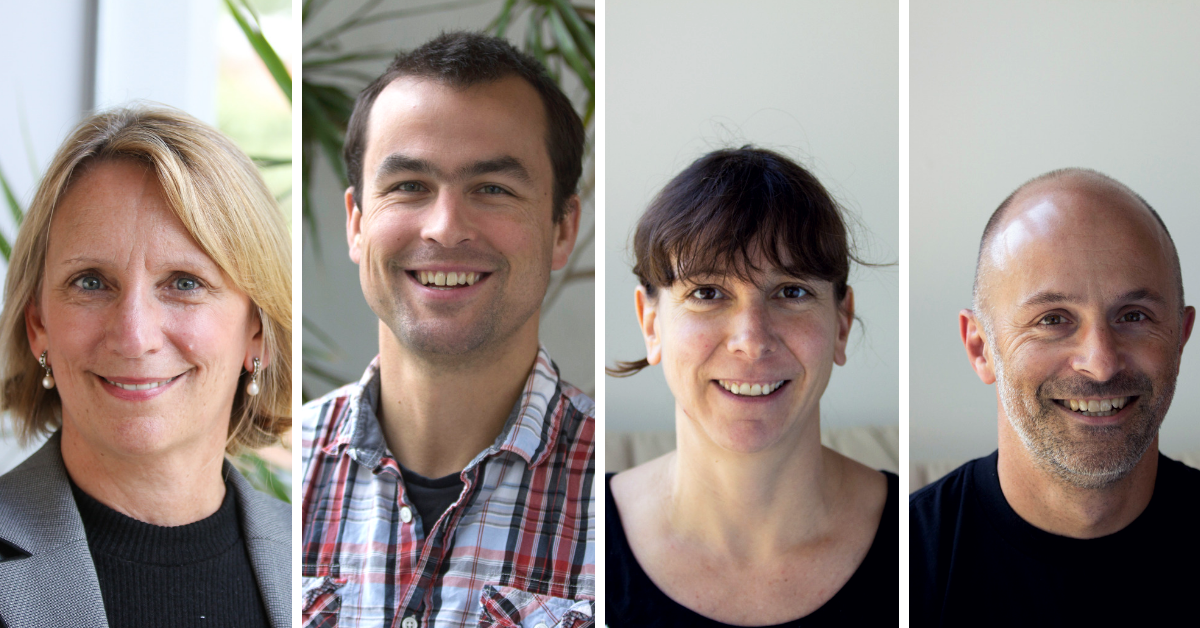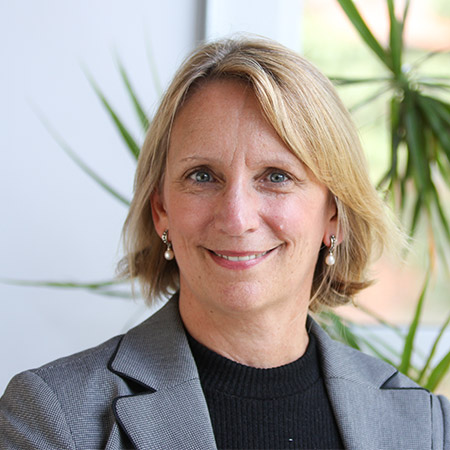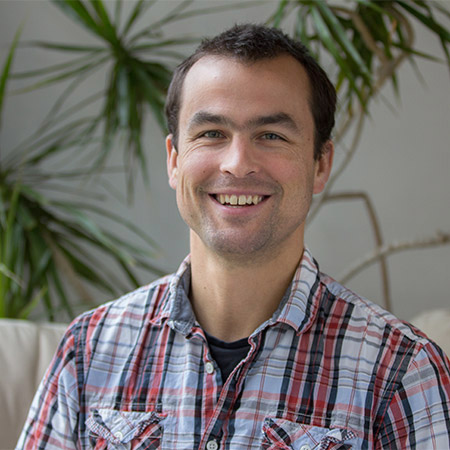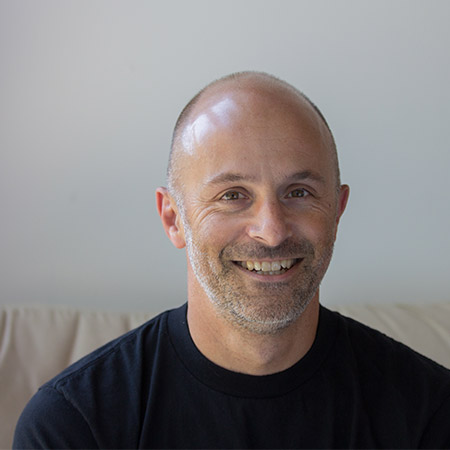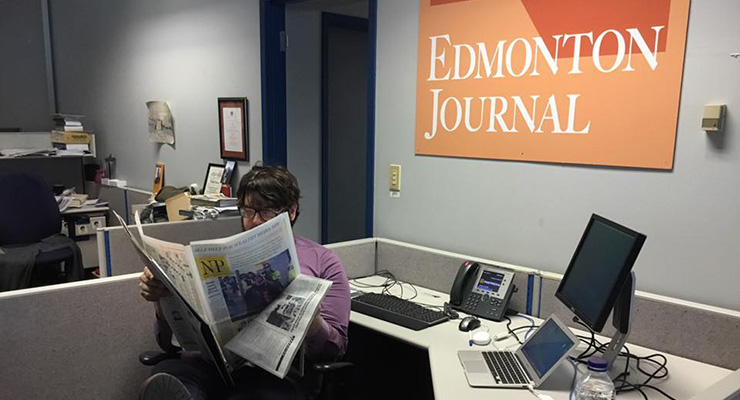Bishop’s University’s Divisional Teaching Awards are awarded to one faculty member per division who has demonstrated a passion for their discipline and their teaching. We have reached out to the recipients to learn more about their passion for teaching and their love for Bishop’s.
Dr. Vicki Chartrand, Associate Professor, Sociology Department
Dr. Chartrand’s research interests include penal and carceral politics, modern day colonialism, grassroots justice and collaborative methodologies. She has recently received a Fonds de recherche du Québec – Société et culture (FRQSC) emerging scholars grant to collect and document the initiatives and strategies of Indigenous families and communities to address missing and murdered Indigenous women and explore alternative grassroots justices. Her related research project traces the historical links between penal and colonial logics to understand the incarceration of Indigenous peoples in Canada today.
Why did you choose Bishop’s University?
For the quality of life in the Eastern Townships. I liked the idea of working in a small university. It’s more personable, less corporate, and much friendlier. There is a lot of latitude to create your work. You are given the opportunity to be more creative and to grow.
What do you like most about teaching?
It’s hard to describe, but I get a rush seeing student moving to a place of awareness, when they come to a place in themselves where the world is not necessarily how they thought it was. Those moments in life are small but can send you in a completely different direction. I know this because that has happened to me in my schooling. I love seeing those “a-ha” moments when their eyes light up in the classroom.
Do you have a standout moment/memory with your students?
I teach Intro to Criminology, and on the very first class, I talk to students and tell them how the majority of the work they do is 5-10% grey-matter and that 90-95% is working hard and being strategic. The reason I do that is that I know for some of those students they don’t have high grades, and they look at me and say “I have a chance” or “I can do this” or even “I am not as stupid as I thought.” You see the energy in the room. It feels like they have hope. Every year this moment is so fundamental because I honestly believe that anyone can do it if you give him or her the right resources and believe in yourself too.
Do you have a memory of a teacher who inspired you when you were a student?
I took a third year course at the University of Ottawa called “Penal Abolition”, and it was the only class where I had a B+ when I had an A in all my other classes, even though I worked harder than any of the other classes. I had an old 60’s revolutionary professor who taught us about the injustices of the system, and it was the first time I saw someone walk their talk or be passionate about what they were teaching. That was my moment of awareness. It was the first time someone was articulating what was there in my heart.
To learn more about the Sociology Department: www.ubishops.ca/sociology
Dr. Denise Fortier, Full Professor, Williams School of Business
Her research interests center on the competencies required for the management of a multicultural workforce, both at home and abroad as well as within virtual teams. Her research interests also include the identification of multicultural managerial competencies, namely as they apply to international leadership, to the management of multicultural teams as well as to virtual teams contexts. She is also interested in international management education, both at the undergraduate and the graduate levels. Along with a group of Bishop’s students, she is researching cutting-edge content and methods to prepare students for work on an international scale.
Why did you choose Bishop’s?
This is home! I came back to Bishop’s University after I completed graduate school because of the nature of the university. I’m also an alumni! I love the class sizes, the generosity on our campus, and seeing students from all over the world. I like that I can develop close relationships with students.
What do you like most about teaching?
There is so much! What I love most about teaching is helping students find their voice and helping them believe they can achieve great things. I cherish everything I learn from them as well. I teach skills-based courses and we have such interesting discussions on communications and other things and their personalities/backgrounds allow you to see the topics from a different point of view, in ways you never thought of before. I love to learn, so this job lets me read and research, making it accessible to students, and they in turn give back to you.
Do you have a standout moment/memory with your students?
I have way too many! One rewarding experience for me is taking students to academic conferences. I love seeing PhD students and professors shocked at the quality of work my students are doing. They are surprised every time they learn my students are undergrads doing graduate quality level work. I also enjoy staying in contact with my students even after they leave the campus. You become part of their journey. In the end, I am most proud of range from everyday occurrences when students who have struggled with a concept finally get it (I love seeing their faces light up), to exceptional events like academic conferences. There is so much to be proud of and to be grateful for!
Do you have a memory of a teacher who inspired you when you were a student?
I have two standout moments. One was from a professor who inspired me to become a professor when I was in graduate school. I was taking a course called Classical Rhetoric, and my teacher, who was a great thinker, was really passionate about the material. He would start teaching us the mainstream views on different topics and after he would share his views and we would always be riveted by what he said. There was also another professor who taught me how to be a teacher. He was the director of the teaching program I was a part of. I was a Master’s student who would teach two courses a semester. He taught us how to teach and how to do it right. He was fantastic. He would give us feedback and help develop our skills in university teaching. When I went on to teach my courses, on my first day, I had that “a-ha” moment, and I knew that this was the place I was meant to be.
To learn more about the Williams School of Business: www.ubishops.ca/wsb
Dr. Nicolas Berryman, Assistant Professor, Sports Studies
Dr. Berryman’s research focuses on the physiological and cognitive factors associated to mobility and healthy aging and fitness assessment and training methods to optimize performance in athletes. He is specifically interested in fitness testing and training prescriptions for both athletic performance and the general population. He wants to know how we can help older people improve their mobility by trying to understand factors that will support and train the adult to improve mobility and quality of life.
Why did you choose Bishop’s?
The Sports Studies Department is fairly recent, so that means there is a lot to build, and I think it’s a great opportunity for a young professor like myself. I chose Bishop’s because of a mix of having the chance to create something new and to work with amazing colleagues. It took me a while to understand the BU culture, since I was coming from another university, but I enjoy it immensely.
What do you like most about teaching?
I did my undergrad to be a physical education teacher. It turned out I actually enjoyed teaching in elementary and high schools, but when I finished my studies I had more questions I wanted to answer, so I went on to do my Master’s. When I had the chance to be a lecturer at the university level, I felt I belonged there. I felt comfortable teaching. I wasn’t a stranger in a new environment. There is an immense workload when it comes to teaching, but I love it. It might sound cliché, but I love when there is a sparkle in a student’s eye when they understand not only the in-class material but the material beyond the classroom as well. These moments don’t happen often, so you have to cherish it when the opportunity comes.
Do you have a standout moment/memory with your students?
Last year I remember as part of a course I was teaching students had to prepare an abstract and oral presentation for the Congress of Sports Studies. I remember two students were selected to speak at the congress while the others presented their posters. The two students who were presenting were very anxious, but we were certain they would do well. We helped them become more confident, and I remember their faces after their presentations. They were smiling and very happy with the job they had done. It was really gratifying to see them confident and happy. It’s all about seeing the students shine.
Do you have a memory of a teacher who inspired you when you were a student?
I had a professor at the Université de Montreal who was a brilliant exercise physiologist. At the end of his career he was name Professor Emeritus. For me, he was a role model. He was an incredible teacher and researcher. He took the time to help his students reach his expectations. He challenged us to be the best we could be.
To learn more about the Sports Studies Department: www.ubishops.ca/sports-studies
Dr. Steven Woodward, Full Professor, English
Dr. Woodward’s long-term research project focuses on the phenomenon of cringe comedy, or simply “cringe.” Cringe is so extreme in its violation of taboos and narratological conventions of identification that it initially embarrasses its audience before allowing them any kind of comic relief in laughter. TV shows such as Fleabag, The Office, and Curb Your Enthusiasm and movies such as Team America and Borat are good examples. Dr. Woodward’s research, already presented in numerous conference papers, explores cringe comedy on three fronts: first, in the context of traditional comedy in general and screen comedy in particular; second, in relation to the social and cultural milieu in which it has flourished; and third, in terms of the social and psychological functions it might fulfill. Dr. Woodward directs the Bishop’s University Film Festival (BUFF) and is currently executive producer of the BU175 documentary-film series.
Why did you choose Bishop’s?
Before coming to Bishop’s, I had previously taught at the University of Toronto, Nipissing University, and Clemson University in South Carolina. From those experiences, I knew I wanted to work at a small university that would allow me to teach a broad range of subjects, preferably in both literature and film since I studied in both those areas myself. At Bishop’s, I’ve had the opportunity not only to do that, but to play a big part in redesigning our English programs and courses around our literature and film-and-media streams.
What do you like most about teaching?
When teaching goes well, it’s exhilarating because you’re in dialogue with young and responsive minds. You have an intense sense of satisfaction in seeing that you’re helping other people understand a field that you love, and your own understanding of that field is intensified and clarified in the process. It’s very performative. And when teaching goes badly, it’s . . . awful.
Do you have a standout moment/memory with your students?
There have been many good moments, but they tend to meld into a general feeling that it’s a great privilege to be a teacher. Because I’m rather self-critical, I tend to remember and dwell on the bad moments, like when I blank on the name of a student who’s taken five classes with me.
Do you have a memory of a teacher who inspired you when you were a student?
I have much gratitude for many influential teachers: an English teacher in grade 5 who thought I was a great writer; another one in grade 6 that read the Odyssey to us; a third one in high school who made us write a coherent paragraph every single day in his class; two Physics teachers who believed in my intellect; and finally, when I was studying film and photography at Ryerson, a teacher/mentor who pushed me very hard to explore and develop my creative abilities.
To learn more about the English Department: www.ubishops.ca/english
To learn more about our academic programs: www.ubishops.ca/academic-programs


